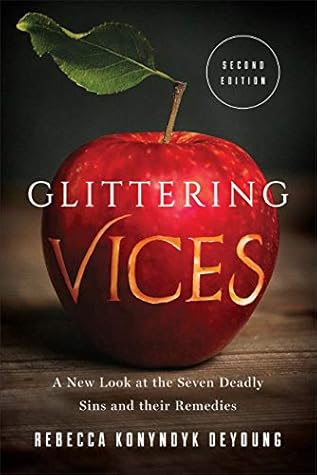More on this book
Community
Kindle Notes & Highlights
Read between
May 7, 2021 - March 26, 2023
A few years later, while reading Thomas Aquinas on the virtue of courage, I happened across a vice he called pusillanimity, which means “smallness of soul.” Those afflicted by this vice, wrote Aquinas, shrink back from all that God has called them to be. When faced with the effort and difficulty of stretching themselves to the great things of which they are capable, they cringe and say, “I can’t.” Their faintheartedness comes from relying on their own puny powers and focusing on their own potential for failure, instead of counting on God’s grace to equip them for great kingdom work—work beyond
...more
Yet seeing ourselves clearly is often difficult. Sometimes we need to hear a precise diagnosis from someone else, and to hear it at a particular time.
Aquinas’s focus and framework point to the people of good character we are meant to become. As our primary task, we should pursue righteousness and moral excellence—not obsess over our weakness and sin.
Inspired by the wisdom of this rich community of thought and practice, this book offers conceptual tools to illuminate our personal stories, enables penetrating diagnoses of our struggles with the vices, and—most important—gives us a glimpse of life and virtue beyond the entrapments of sin.
To wrestle with the vice of vainglory therefore requires reflection on how much the desire for attention and acclaim can dominate—and damage—our lives.
Vainglory is the excessive and disordered desire for recognition and approval from others.
When caught in the vice of vainglory, we want acclaim too much—so much, in fact, that we will accept it whether or not we deserve it.
Many of us habitually stretch or streamline the truth to seem better than we are or to avoid criticism.
Our life’s adventures are more satisfying when filmed and shared, just as our child’s spot on an elite sports team or our own completion of a road race warrants a sticker on the back window of our SUV. More mundanely, we often feel a bit flat if we have a really productive day at work but no one to tell about it.
What makes vainglory distinct from pride, then, is love of “the show.” Prideful people want superior status more than anything else. They value being “number one,” to the point of seeking greatness in ways that appropriately belong only to God. The vainglorious, on the other hand, seek whatever will bring in the most attention and applause, whether it is excellent and deserving or not. Pride names the desire for genuinely exalted status; vainglory, a desire for recognition, publicity, and acclaim.
Pushed to its limits, vainglory disposes us to be more concerned with our reputation (what others think about us) than with what we really are. For the vainglorious, image is everything.
Vainglory also contrasts with pride: the proud person wants to be the director of the best show ever produced, and the honor-seeker desires rave reviews crediting her work as director from a certain circle of critics, but the glory-lover will happily sink to new depths of shocking spectacle as long as ratings will be high.
Vainglory pinpoints not just any glory-seeking, of course, but rather its disordered form. Glory-seeking goes awry in many ways, but the name “vainglory” spotlights ways that are vain or empty.
In contemporary Western life, the cosmetic and fashion industries make billions in profits every year capitalizing on our weakness for vainglory.
Magnanimous people stretch themselves to inspiring acts of virtue as something to which God has called them. Their achievements genuinely deserve honor and turn our thoughts to the glory of God because they obviously aren’t something anyone could have done without grace. Magnanimous people are luminous, alight with God’s beauty and goodness.


